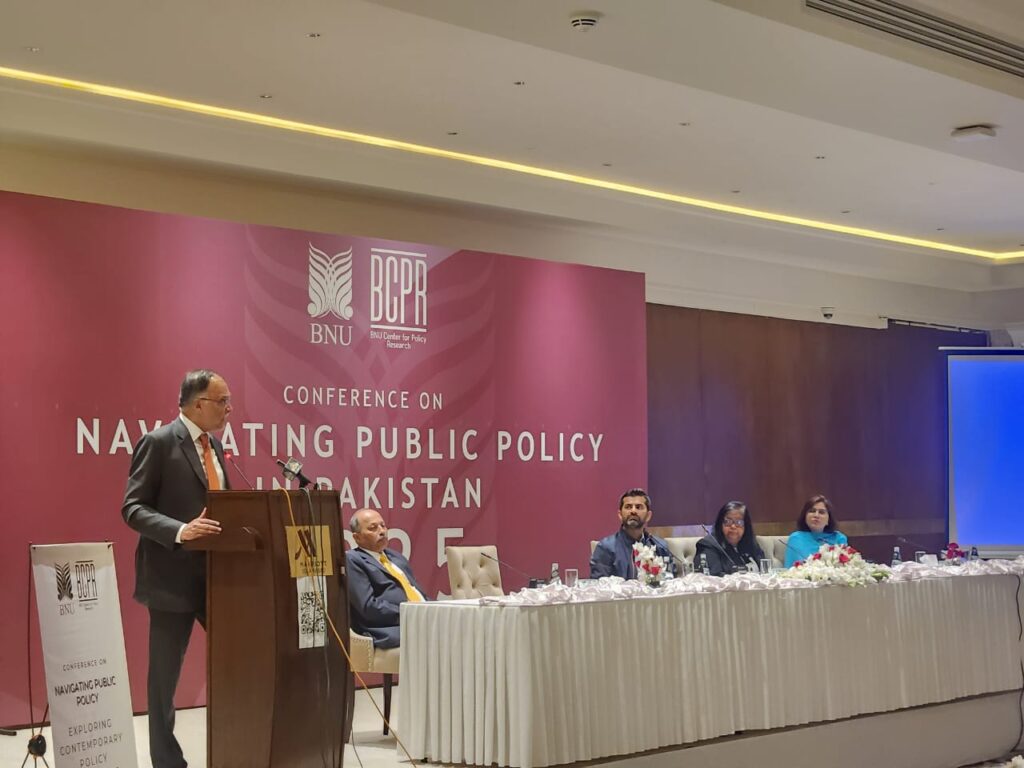
Islamabad : The Beaconhouse National University (BNU) successfully conducted a policy conference titled “Navigating Public Policy: Compilation of Policy Notes. The event marked the launch of BNU’s research work on public policy, presenting 11 action-oriented Policy Notes as independent policy input to the Government of Pakistan.
Minister for Planning, Development and Special Initiatives Professor Ahsan Iqbal stressed that national development required a supportive ecosystem, akin to those in developed countries, built upon four foundational principles including peace and harmony, at least a decade of political stability, policy consistency and continuous reforms.
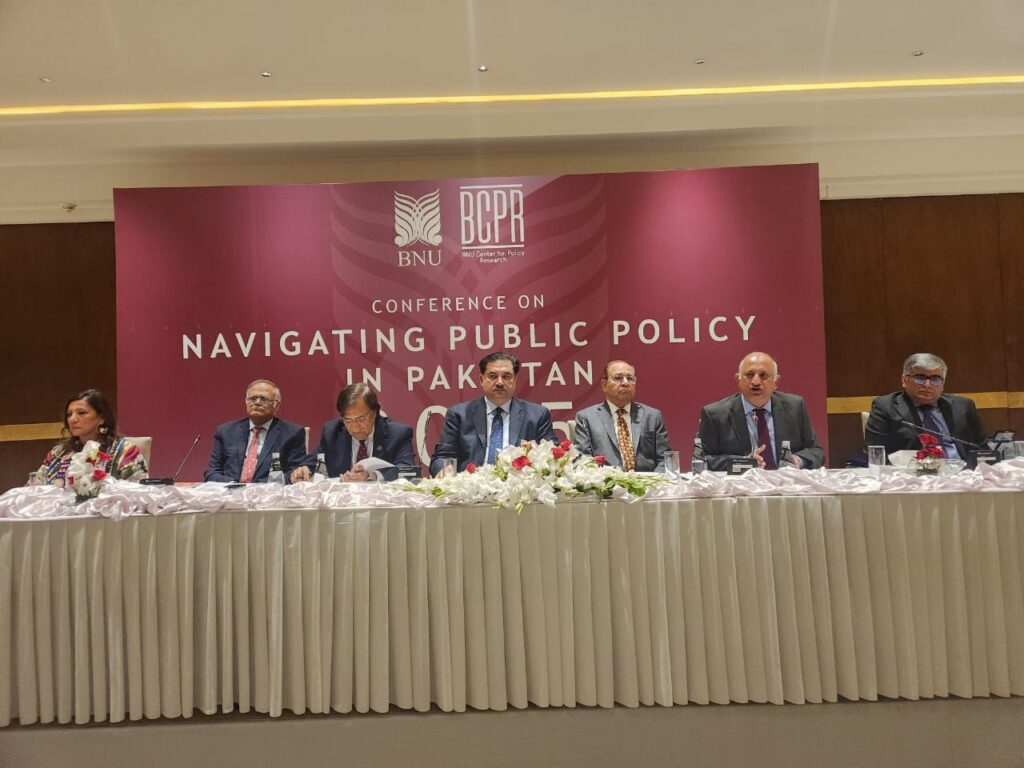
“The seed of development needs a conducive ecosystem, based on these four pillars, which are evident in every success story,” he stated while addressing a seminar titled ‘Navigating Public Policy.’
He lamented the country’s political instability in the past, describing it as a decades-long “musical chairs” scenario, where governments changed every two to three years, resulting in the abandonment of carefully crafted policy frameworks and severely hindering national development and prosperity.
While acknowledging that Pakistan has made significant strides since its inception in 1947, the minister admitted that the pace of development fell short compared to global standards. “We have to cut a sorry figure when compared with developed nations,” he said.Pakistani travel guides
Recalling economic comparisons, Ahsan Iqbal said that in 1960, Pakistan’s exports were approximately $200 million, while South Korea, Malaysia, and Thailand had exports around $205 million. Today, Pakistan’s exports stand at around $32 billion, in contrast to South Korea’s $600 billion, Malaysia’s $300 billion and Thailand’s $200 billion.
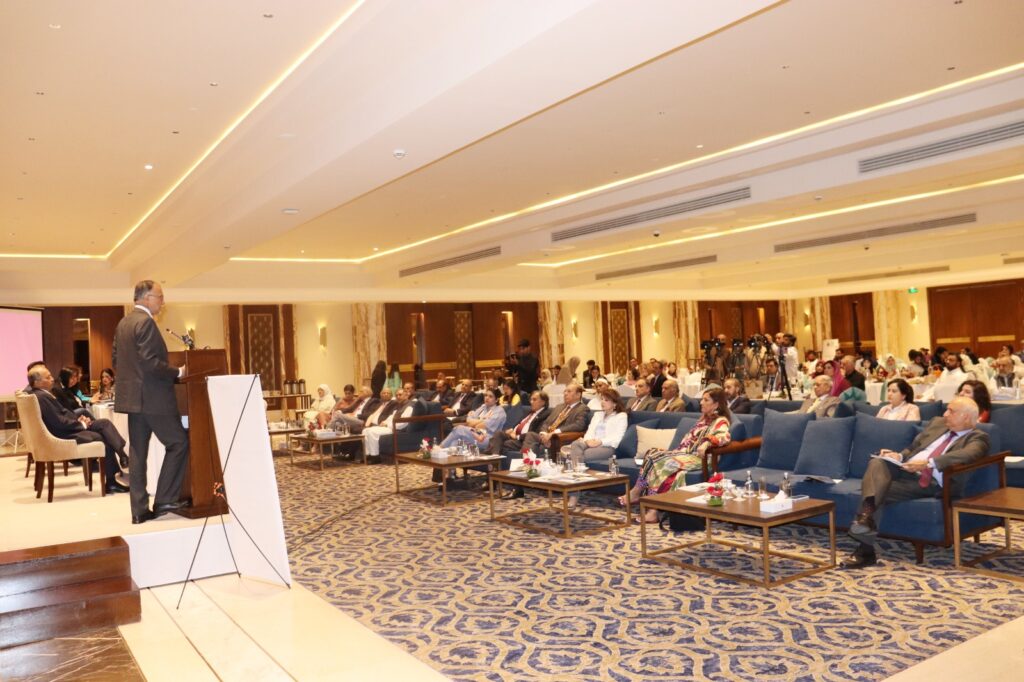
Highlighting another comparison, he said that in 1980, Pakistan’s per capita income was $300 compared to China’s $200. However, today Pakistan’s per capita income was around $1,600, while China’s has surged to approximately $16,000.
He stressed that the Pakistani nation possessed all the essential characteristics to transform into a developed country, but reiterated that peace, political stability, policy continuity and ongoing reforms were crucial to keeping pace with rapidly evolving global technologies.Pakistani travel guides
Recalling the PML-N’s 2013 tenure, Ahsan Iqbal said Pakistan at that time was grappling with prolonged electricity load-shedding and heightened terrorist activity. “With complete determination, within four years, we eliminated load-shedding, eradicated terrorism, and cleansed the country of terrorists,” he said.
He further highlighted the significance of the China-Pakistan Economic Corridor (CPEC), which brought in $25 billion in investment. International rating agencies had predicted that, if Pakistan maintained its development trajectory, it could be among the world’s top 20 economies by 2030. “This was a validation of our Vision 2010 and Vision 2025,” he remarked.
These policy notes, originally authored in 2024, cover a wide range of topics of national importance, including national reconciliation, Pakistan’s foreign policy challenges, debt management, the geoeconomic paradigm and regional connectivity, increasing Pakistan’s exports, enhancing manpower exports, leveraging opportunities in the IT sector, improving human capital, addressing the issue of out-of-school children, ensuring a drug-free and healthy environment in university campuses, and climate diplomacy. Renowned experts from across Pakistan contributed to this comprehensive research effort.
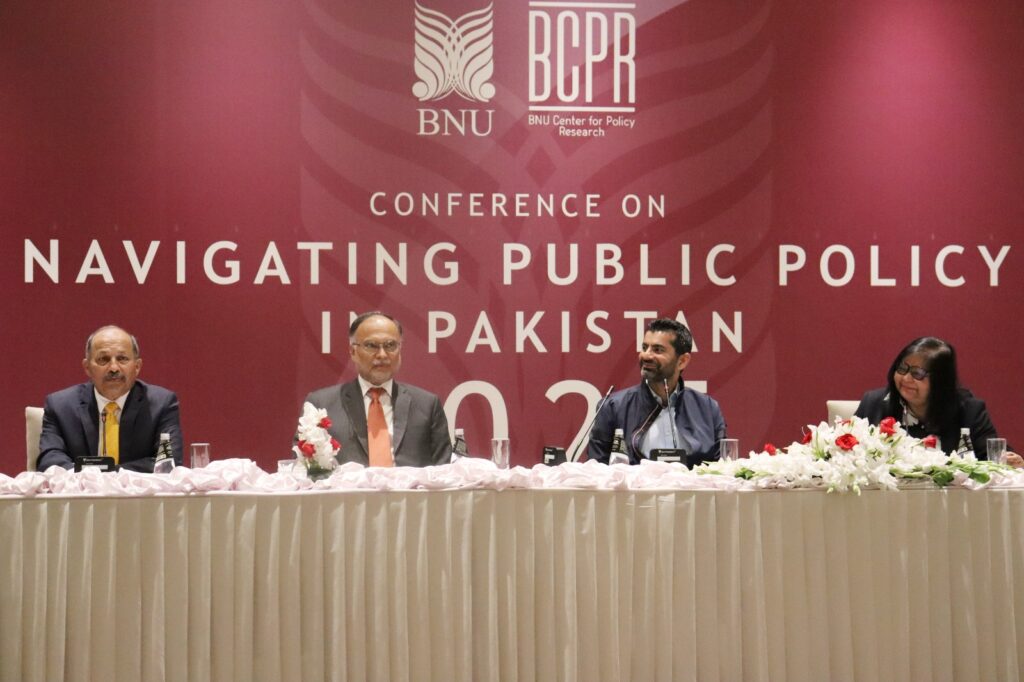
The seminar was graced by the presence of the Chief Guest, the Minister for Planning, Development and Special Initiatives, Mr. Ahsan Iqbal.
The event’s main attraction was Mr. Mudassir Sheikha, CEO of Careem, an entrepreneur who has played a pivotal role in developing some of the most well-known startups in Pakistan and the region. Mr. Sheikha spoke about the importance of digitization and the immense opportunities for Pakistan’s IT sector to grow further, given the current geopolitical and global environment. He highlighted the potential of the IT sector as a game-changer for Pakistan’s economic productivity. The first session of the conference also featured discussions on the IT sector and how innovation in this field can significantly enhance economic productivity involving internationally renowned Pakistani experts Jehan Ara, CEO of Katalyst and former President of P@sha and Tania Aidrus.
The second conference session included debate on a wide array of issues among experts and policy influentials like Javed Jabbar, Imrana Tiwana, Dr. Nizammuddin, Mr. Kashif Noor, Mr. Tariq Ikram, and Mr. Haroon Sharif, with Dr. Zainab as the moderator. The session discussed policy solutions on issues such as political reconciliation, increasing export rates, regional connectivity, and the importance of investment in education for higher economic dividends, as well as climate resilience and adaptation.
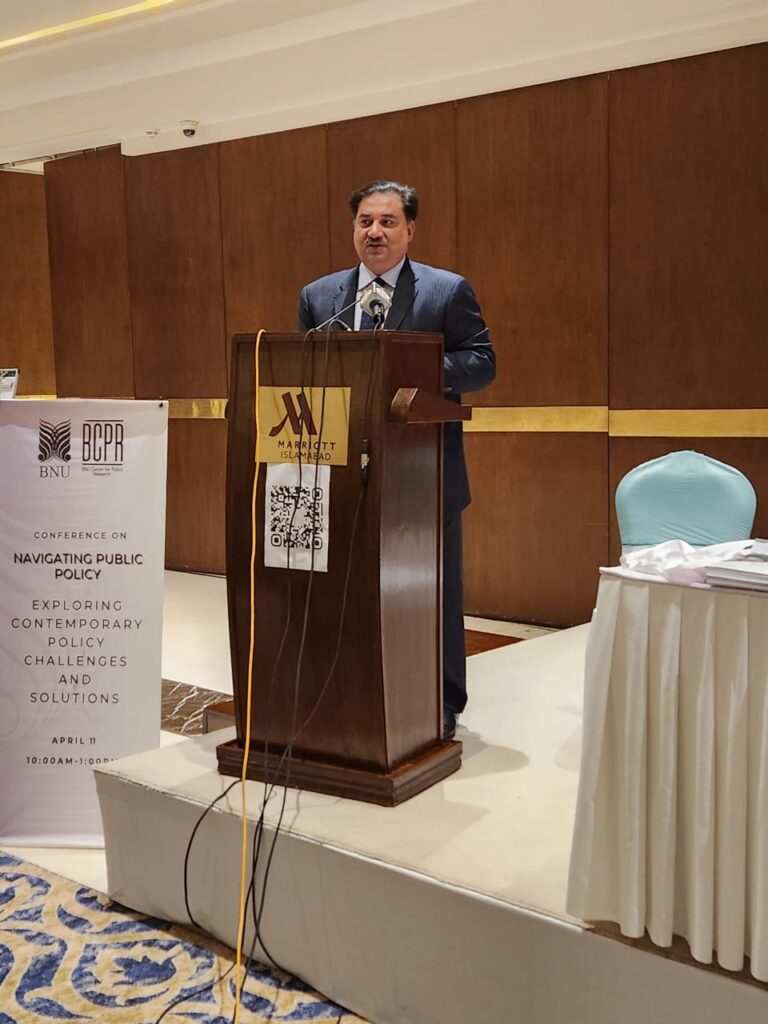
Mr. Khurram Dastagir, former Minister of Foreign Affairs, Defense, Commerce, and Energy delivered an absorbing concluding address identifying gaps and challenges in Pakistan’s policy making processes and apparatus.
The Conference was first of its kind by an academic institution presenting policy prescriptions in distilled form before government for expedited implementation. The event was attended by BNU staff, students, researchers, and academics/scholars from NUML, QAU, IQRA University, and NDU, along with government officials, foreign diplomats, and public intellectuals.
BNU’s Vice-Chancellor, Dr. Moeed Yusuf, emphasized that the university will continue to work on these policy issues in support of policymakers and opinion leaders in the country. The Director of BNU Center for Policy Research (BCPR) in his welcome remarks highlighted significance of engaging country’s youth in policy-related processes.
The successful conduct of this seminar underscores BNU’s commitment to contributing to Pakistan’s policy discourse and supporting the nation’s development through evidence-based research and actionable policy recommendations.